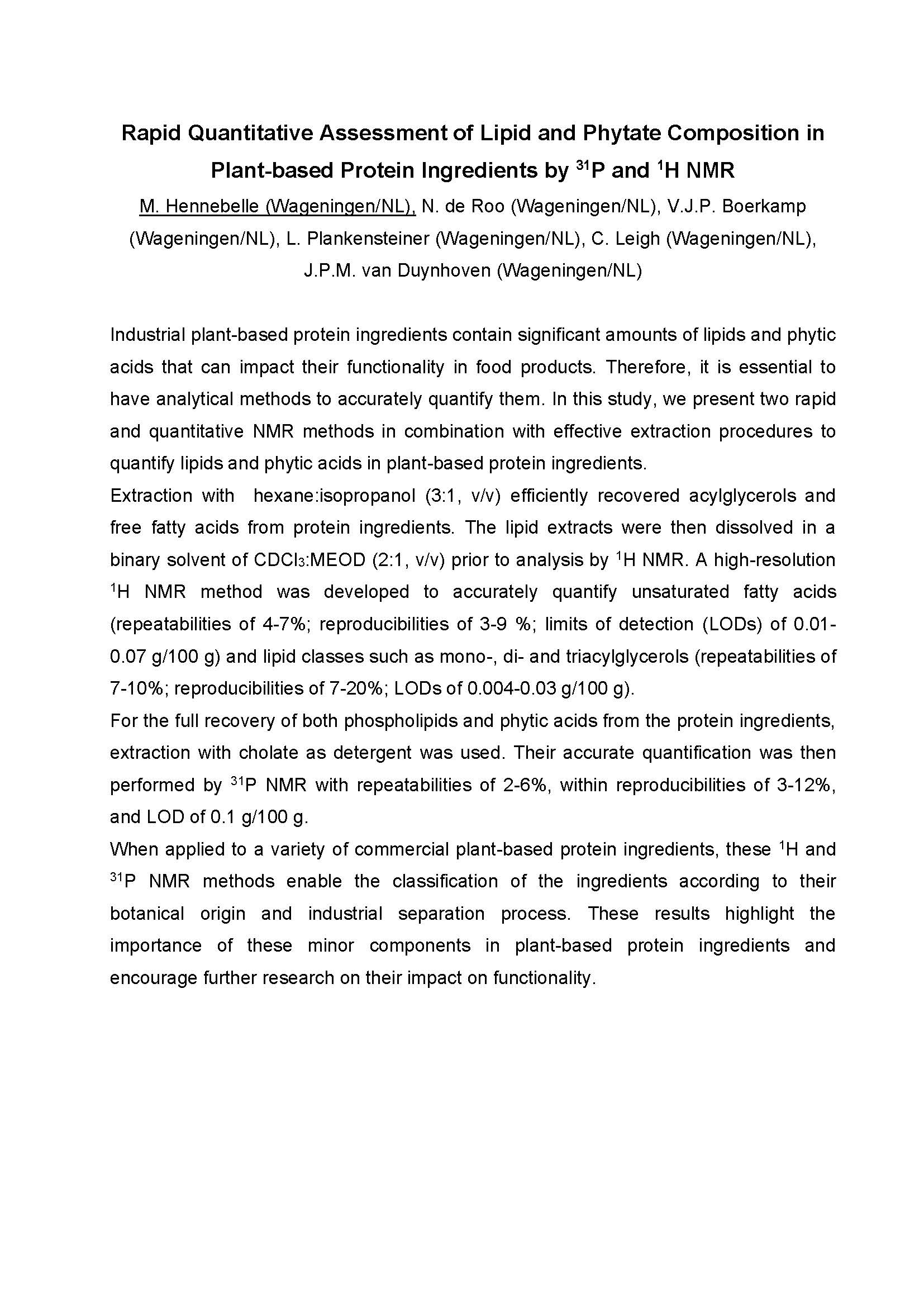Industrial plant-based protein ingredients contain significant amounts of lipids and phytic acids that can impact their functionality in food products. Therefore, it is essential to have analytical methods to accurately quantify them. In this study, we present two rapid and quantitative NMR methods in combination with effective extraction procedures to quantify lipids and phytic acids in plant-based protein ingredients.
Extraction with hexane:isopropanol (3:1, v/v) efficiently recovered acylglycerols and free fatty acids from protein ingredients. The lipid extracts were then dissolved in a binary solvent of CDCl3:MEOD (2:1, v/v) prior to analysis by 1H NMR. A high-resolution 1H NMR method was developed to accurately quantify unsaturated fatty acids (repeatabilities of 4-7%; reproducibilities of 3-9 %; limits of detection (LODs) of 0.01- 0.07 g/100 g) and lipid classes such as mono-, di- and triacylglycerols (repeatabilities of 7-10%; reproducibilities of 7-20%; LODs of 0.004-0.03 g/100 g).
For the full recovery of both phospholipids and phytic acids from the protein ingredients, extraction with cholate as detergent was used. Their accurate quantification was then performed by 31P NMR with repeatabilities of 2-6%, within reproducibilities of 3-12%, and LOD of 0.1 g/100 g.
When applied to a variety of commercial plant-based protein ingredients, these 1H and 31P NMR methods enable the classification of the ingredients according to their botanical origin and industrial separation process. These results highlight the importance of these minor components in plant-based protein ingredients and encourage further research on their impact on functionality.
